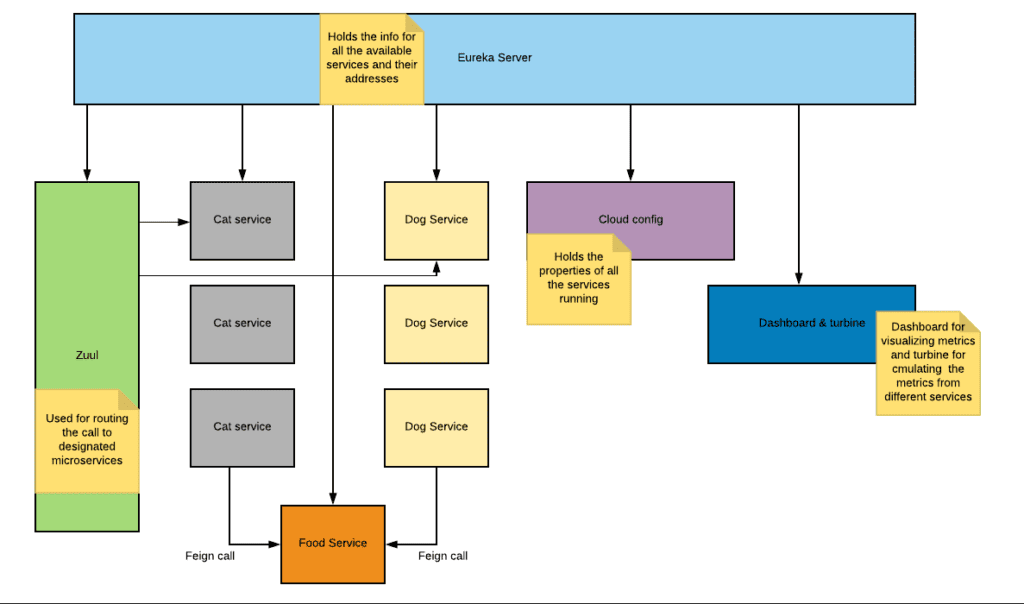Declarative REST Client: Feign

Feign is a declarative web service client. It makes writing web service clients easier. To use Feign create an interface and annotate it. It has pluggable annotation support, including Feign annotations and JAX-RS annotations. Feign also supports pluggable encoders and decoders. Spring Cloud adds support for Spring MVC annotations and for using the same HttpMessageConverters used by default in Spring Web. Spring Cloud integrates Ribbon and Eureka to provide a load-balanced http client when using Feign.
How to Include Feign
To include Feign in your project, use the starter with group org.springframework.cloud and artifact id spring-cloud-starter-openfeign. See the Spring Cloud Project page for details on setting up your build system with the current Spring Cloud Release Train.
Example spring boot app
@SpringBootApplication
@EnableFeignClients
public class Application {
public static void main(String[] args) {
SpringApplication.run(Application.class, args);
}
}
StoreClient.java.
@FeignClient("stores")
public interface StoreClient {
@RequestMapping(method = RequestMethod.GET, value = "/stores")
List<Store> getStores();
@RequestMapping(method = RequestMethod.POST, value = "/stores/{storeId}", consumes = "application/json")
Store update(@PathVariable("storeId") Long storeId, Store store);
}
In the @FeignClient annotation, the String value (“stores” above) is an arbitrary client name, which is used to create a Ribbon load balancer (see below for details of Ribbon support). You can also specify a URL using the url attribute (absolute value or just a hostname). The name of the bean in the application context is the fully qualified name of the interface. To specify your alias value, you can use the qualifier value of the @FeignClient annotation.
The Ribbon client above will want to discover the physical addresses for the “stores” service. If your application is a Eureka client, then it will resolve the service in the Eureka service registry. If you don’t want to use Eureka, you can configure a list of servers in your external configuration
for the full documentation, please visit the https://cloud.spring.io/spring-cloud-netflix/multi/multi_spring-cloud-feign.html